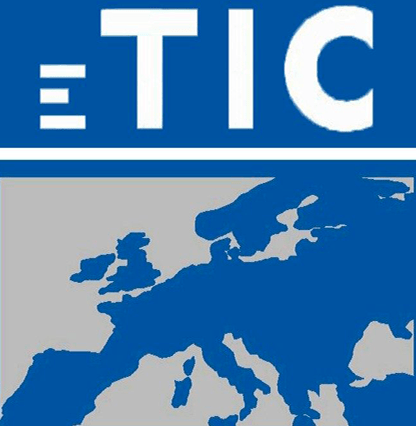eTIC encourages and supports the concrete implementation, which has become urgent, of an ambitious European Socle of Social Rights allowing everyone to go through the crises and the incessant changes. The work of consolidation and improvement of European collective standards must be accelerated in order to guarantee a minimum base to all employees and to reduce intra-EU dumping.
eTIC strongly encourages the continuation of the harmonization of social rights in the EU and the setting up by the social partners of a European system of "Individual Social Rights Account" which would centralize for each worker his or her rights to continuing education, retirement, unemployment... The movement of workers across the EU for an apprenticeship or training should be facilitated so that the best practices can be used.
For eTIC, the SEDS should have the ambition to create a real single and fluid employment market implementing the values and objectives of the EU, guaranteeing new or evolving rights in social, trade union, societal, environmental, economic and human rights matters, taking into account the evolution and progress of humanity, in order to provide, in an adapted, fair and balanced way, the best conditions of work, health and safety, of present and future quality of life (ecological and sustainable), of economic prosperity and, actively participating in meeting the challenges of a world in constant and rapid change.
It is more than urgent to relaunch the construction of Social Europe in response to the aspirations of citizens waiting for a concrete and tangible result and to let them know. The economic development of the European Union has not produced the social progress and social cohesion hoped for. Worse still, the file of Social Europe has been closed, turning the citizens away from the European Project. The popular momentum has come to a halt. The exasperation of the citizens has arisen with the rise of populism.
eTIC advocates SOCIAL DIALOGUE at the European level as well as at all levels in each country, with an increased and enhanced role for the social partners, including P&MS representatives. eTIC stresses the need for a distinct, finally fairer and more balanced place for the specific category of professional and managerial staff, which is vital for social cohesion and the implementation of the EU's advances.
eTIC wishes to list some very important issues that have not been adequately addressed:
- Environmental issues related to employment, Sustainable Development Goals,
- Corporate Social Responsibility, the societal participation of employers towards Society in return for the provision of infrastructure (transport, internet, security) and educated and healthy human resources,
- European Works Councils,
- The role of the Economic and Social Council and the European Parliament which could be increased in the social field in support of a reinforced Social Dialogue,
- Employer representativeness including all new types of employers,
- The under-representation of the specific category of "Managers and Executives" in proportion to the other workers, at all levels of the European social dialogue, and especially sectoral,
- Trade union discrimination and its effects on careers, the need for reinforced protection of holders of trade union mandates, including supranational ones, the valorisation of trade union commitment in companies,
- The strengthening of the place and role of trade unions,
- The social rights of young people in internships, apprenticeship contracts, work-study programs, etc., in relation to the work performed,
- The articulation of the European Socle of Social Rights with the European funds (ESF, ERDF),
- The organization of the end of careers, the transition to retirement for seniors,
- The recognition of psycho-social risks, professional stress, burn-out syndrome as an occupational disease and their integration as such in the legislation and its applications,
- The better taking into account of the psychic handicap in the working world,
- The distribution of added value,
- Taxation, VAT, aggressive tax optimization, intra-community tax havens, social dumping,
- The facilitation of the movement of workers in the EU,
- Dependency, the aging of the population, family caregivers of parents or young people,
- mastering the language of the host country and cultural codes.
Let's roll up our sleeves. You can count on the eTIC federation to build the social Europe to which the vast majority of European citizens aspire.




